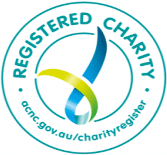Hello Ally,
Welcome to the most important gift of anti-racism education.
Today we have a game that you can keep and use over the holiday break, a lunch break; practically anytime when you feel the need to breakaway. This year, over the course of our lockdowns the All Together Now team chanced upon a mind changing tool that proved to psychologically ween us off the intensity around bad news. It felt like a round of meditation that cleared our head. (4 mins read)
Staying connected online, especially this last year has been overwhelming to say the least. Believe us when we say our (telehealth) visits to the therapist increased drastically, and not just because of the pandemic and lack of real social activity. The media we’ve consumed over the lockdown has become intense, as if we weren’t already having to sift through a minefield of over-information and anxiety producing articles every day. Welcome to the most important gift of anti-racism education.

Enter Bad News – A game that you can bookmark in your tabs forever if you like. Refreshingly simple to play, it helps to change your perspective on public information and detaches you from reacting to every bit of news headline.
Bad News is a fun, easy to use game that simulates posting “fake news” and the recognition that what you share can result in increasing the number of followers on your twitter account. The more controversial the editorial headline, the more people follow you. It’s quite confronting at first with a certain element of thrill that gets your head thinking in healthier ways.
You may find that you will stop reacting to every bit of news and social commentary that comes your way, and instead may look beyond what negative news is doing to the way you think, and more importantly, why it’s there.

No spoiler alerts here but in order to excel at the game (get many twitter followers) you may need to get comfortable with choosing to post fake news. It might feel challenging and unethical at first, resulting in the lack of followers but on follow up attempts if you go down the unethical part you will notice the difference in the number of followers you gain. Sounds weird? Well that’s the unconditioning that will broaden your perspective. You can read more about inoculation theory on which the game is based that can reduce susceptibility to misinformation across cultures.
Without further ado, give it a go and remember it’s a simulation about fake news on a fake twitter account that isn’t published publicly, so there will be no consequences in the real world. Have a bit of fun. Dive right in and let the year-end media detox begin.
Wondering why we care about your year-end media detox?
Racist media and social commentary negatively affect people and communities. Reading over the statistics below will give you more to think about before you start posting and sharing news on your social media accounts.
“The majority (62%) of Australian news consumers consider independent journalism to be important for society to function properly, but this is less so among those who rely on social media for news (57%).”
The Digital News Report, Australia
“48 per cent of Australians rely on online news or social media as their main source of news, but 64 % of Australians remain concerned about what is real or fake on the internet”
ACMA media report 2020
“A false story reaches 1,500 people six times quicker, on average, than a true story does.”
The spread of true and false news online MIT
“First, fake news seems to be more “novel” than real news.”
“Second, fake news evokes much more emotion than the average tweet.”
Soroush Vosoughi data scientist at MIT. The Atlantic, 2018
“89% of racist opinion pieces in mainstream Australian newspapers were authored by people from an Anglo-Celtic and/or European background”
Media Monitoring Report, All Together Now, 2020
“Of 159 negatively racialised opinion articles, 96% were authored by someone with an Anglo-Celtic or European Cultural background.”
Media Monitoring Report, All Together Now, 2020


